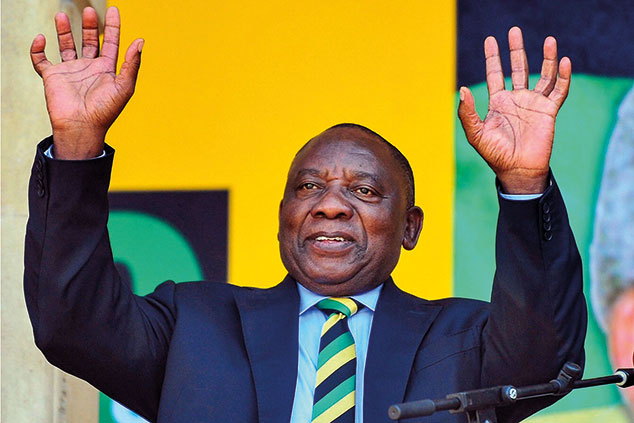
A strong dollar has “marked a dividing line between the US and the rest of the world”. But the emerging countries whose currencies and stockmarkets have been worst hit are those whose problems were self-inflicted. Investors have therefore been especially worried about Turkey and Argentina in the past few weeks. Their latest headache, however, is South Africa.
From Ramaphoria to recession
We learnt last week that the economy fell into recession in the second quarter of 2018, contracting by 0.7% after a decline in GDP between January and March. Agriculture, transport and retail were the chief culprits, according to Reuters. The picture was gloomy all round, says The Economist, especially in farming, which was badly hit by drought. “The rand, already roiled by a sell-off of emerging-market currencies, plunged to depths not seen since the worst moments of former president Jacob Zuma’s tenure.” Unemployment has ballooned to a frightening 37.2%. This dismal data might make it harder for the South African Reserve Bank to raise interest rates to squeeze out inflation, which has now reached 5.1%.
The “Ramaphoria” that surrounded South African president Cyril Ramaphosa’s election six months ago has waned. The ruling African National Congress (ANC) is still destined for election victory next year, says Ed Cropley on Breakingviews, “but without a solid win Ramaphosa’s grip on the party, and his ability to push through growth-boosting economic reforms, will be in doubt”. Investors’ hopes may have been too high when he took over.
A long uphill struggle
After nine years of corruption and overspending, it was never going to be easy to rein in spending and turn around bloated state firms. For now, however, the government doesn’t seem to be doing itself any favours. It is pushing a spending package that includes infrastructure projects and subsidies for farmers, according to The Economist. “How the government would pay for this is a mystery.” Tax collection slumped and tax evasion soared under Zuma. To help narrow a yawning budget deficit, Ramaphosa increased value-added tax earlier this year. But that has hurt consumer spending.
Meanwhile, another headache looms: a review of the country’s credit rating is due in October. “If Moody’s cuts [it] to junk, South African bonds would be thrown out of global indices, prompting a sell-off. That implies higher borrowing costs and yet more pressure on the economy.”